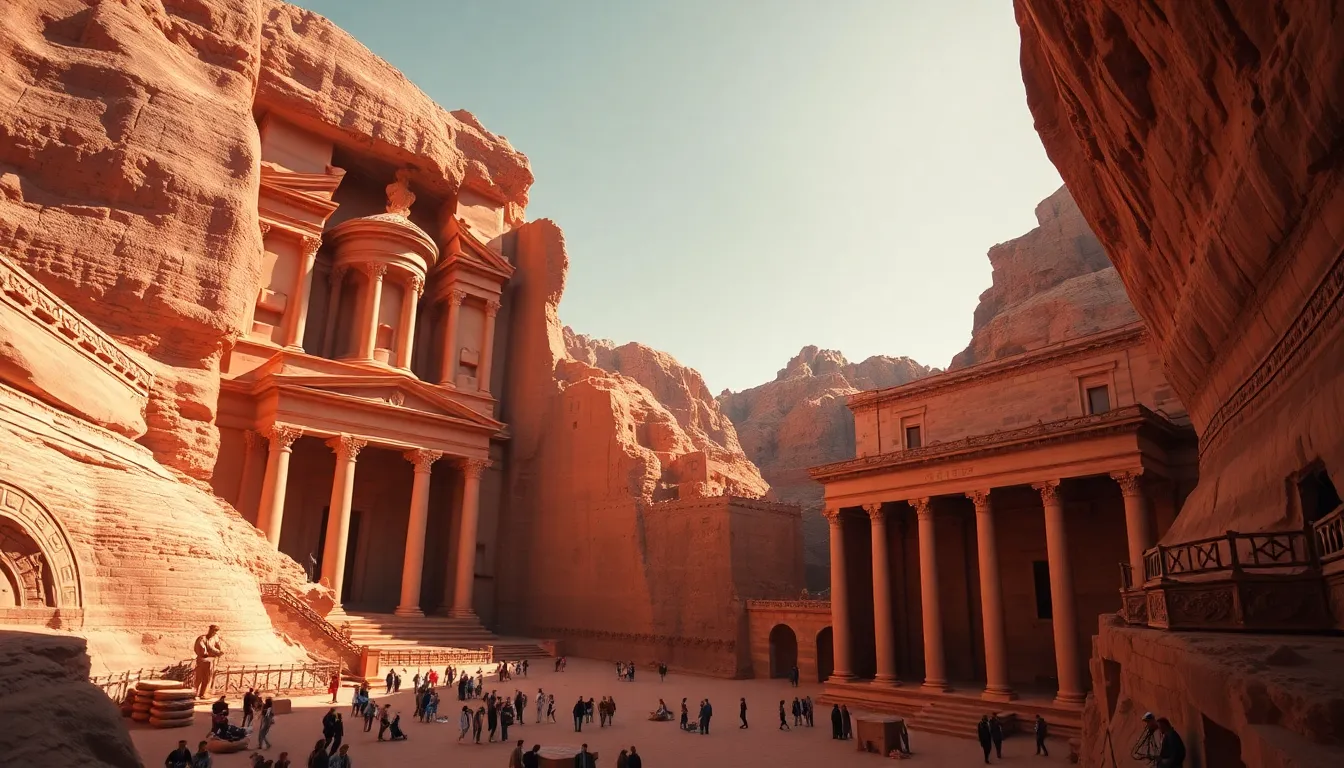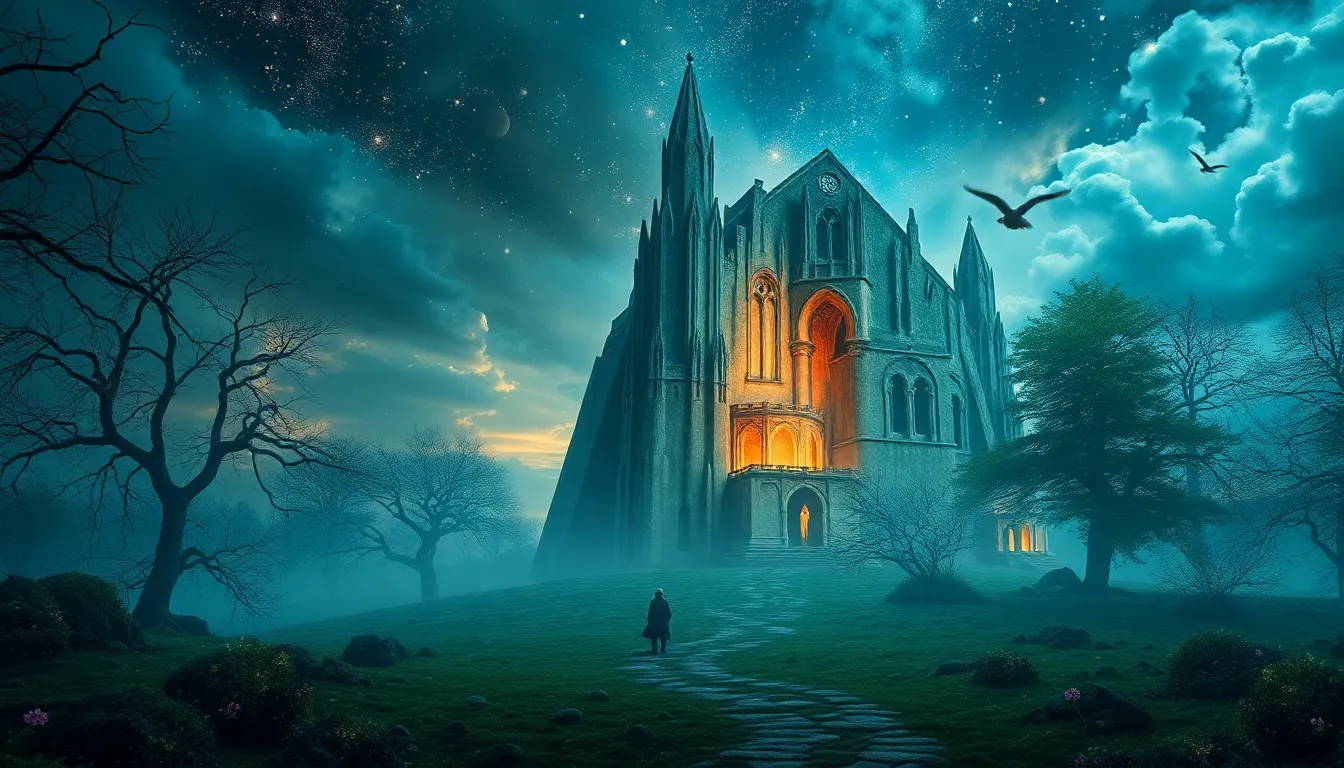The Enigmatic Kingdom of the Lost Souls: Myths of Redemption
Introduction to the Kingdom of the Lost Souls
The Kingdom of the Lost Souls is a concept that resonates deeply across various cultures, symbolizing a realm where souls that have departed from the physical world linger in search of solace or redemption. This enigmatic concept serves as a powerful metaphor for loss, grief, and the human struggle for reconciliation with one’s past. Themes of loss and redemption are pervasive, reflecting our innate desire to understand and navigate the complexities of existence.
Historical Origins of the Myths
The origins of the myths surrounding lost souls can be traced back to ancient civilizations, where diverse beliefs shaped the narrative of the afterlife and the journey of the soul. For instance, the ancient Egyptians believed in an elaborate afterlife system, where the soul would face judgment. Similarly, the Greeks introduced the concept of Hades, a realm where souls resided, often depicted as shadowy figures searching for meaning.
Over time, these ideas evolved through folklore and religious texts, merging with local beliefs and practices. As cultures intermingled, the stories of lost souls adapted, reflecting the values and fears of each society. The myths grew richer, often portraying lost souls as figures yearning for redemption or forgiveness.
Cultural Variations in the Mythology of Lost Souls
The interpretation of lost souls varies significantly between Eastern and Western cultures. In Western traditions, lost souls are often depicted as wandering spirits, trapped between worlds due to unresolved issues or unfulfilled desires. In contrast, Eastern philosophies, such as Buddhism, view the concept of lost souls through the lens of karma and rebirth, emphasizing the cyclical nature of existence and the potential for enlightenment.
Indigenous cultures also have unique perspectives on lost souls, often incorporating nature and ancestral spirits into their narratives. For example:
- Native American cultures: Many tribes believe in the importance of honoring ancestors, viewing lost souls as guides who can help the living find redemption.
- African traditions: Various African religions hold that the spirits of the deceased remain active in the community, and rituals are performed to ensure their peace and facilitate their guidance for the living.
Symbolism of the Lost Souls
Common symbols associated with lost souls often include wandering spirits, shadows, and fog. These symbols convey messages of hope and redemption, suggesting that the journey of a lost soul is not solely one of despair but can also be a path toward enlightenment. The symbolism of shadows, for instance, represents the parts of ourselves that are hidden and the need to confront our fears.
Additionally, other symbols may include:
- Light: Representing hope and the possibility of redemption.
- Water: Symbolizing purification and the cleansing of the soul.
- Fire: Often associated with transformation and renewal.
The Journey of Redemption: Archetypes and Narratives
Many archetypal narratives involve lost souls seeking redemption, often portraying a journey filled with trials and tribulations. Classic stories such as Dante’s “Inferno” illustrate this journey vividly, where souls confront their past misdeeds in hopes of achieving salvation.
Other notable literary and cinematic representations include:
- “The Lovely Bones” by Alice Sebold: A haunting tale of a young girl navigating the afterlife while seeking closure for her family.
- “A Christmas Carol” by Charles Dickens: A story of transformation where Ebenezer Scrooge, a lost soul in his own right, discovers the importance of redemption.
Psychological Interpretations of the Myths
The myths of lost souls often reflect deep human psychology and existential dilemmas. They serve as metaphors for our own struggles with grief, guilt, and the quest for meaning. The unconscious mind plays a significant role in how we interpret these myths, as they often bring to light our fears and desires regarding mortality and the afterlife.
Psychologists suggest that these narratives help individuals confront their feelings of loss and the need for redemption, providing frameworks to process complex emotions. They offer a means of exploring the human condition, highlighting universal themes of suffering and the hope for renewal.
Modern Adaptations of the Kingdom of the Lost Souls
In contemporary literature, film, and art, the mythology of the Kingdom of the Lost Souls continues to thrive. Modern adaptations reinterpret themes of loss and redemption, often merging traditional narratives with new contexts. For instance, movies like “Coco” celebrate the importance of family and remembrance, while exploring the idea of lost souls in a vibrant afterlife.
Graphic novels and video games also delve into these themes, providing interactive experiences that allow audiences to engage with the narrative of lost souls on a personal level. Titles like “Hellblade: Senua’s Sacrifice” explore mental health through the lens of myth, demonstrating the enduring relevance of these stories.
The Role of Rituals and Practices in Seeking Redemption
Rituals and practices aimed at reconciling with lost souls play a crucial role in many cultures. These practices often provide a structured way for individuals and communities to cope with loss and seek redemption. Examples include:
- Dia de los Muertos (Day of the Dead): A Mexican tradition honoring deceased loved ones, where families create altars and celebrate their lives.
- Obon Festival: A Japanese Buddhist custom where families honor the spirits of their ancestors through dance and offerings.
- Traditional African ceremonies: Various rituals aimed at appeasing ancestral spirits and ensuring their guidance.
These rituals not only impact individuals but also foster community bonds, reinforcing shared beliefs and cultural identity.
The Kingdom of the Lost Souls in Popular Culture
Modern media often portrays the Kingdom of the Lost Souls, influencing public perception of these myths. Television shows, movies, and video games frequently explore themes of loss, redemption, and the afterlife, making these concepts accessible to wider audiences. Series like “The Good Place” and movies like “Ghost” illustrate the complexities of morality and redemption in a contemporary context.
Moreover, graphic novels such as “Sandman” by Neil Gaiman delve into the intricacies of the afterlife, weaving tales that challenge traditional notions of lost souls and redemption.
Conclusion: The Enduring Legacy of Myths of Redemption
The myths surrounding the Kingdom of the Lost Souls continue to hold significant relevance in contemporary society. They serve as powerful narratives that help us understand and cope with the inevitability of loss and the enduring quest for redemption. Through storytelling, we find solace, hope, and a shared understanding of the human experience.
As we navigate our own journeys of loss and redemption, these myths remind us of the universal nature of our struggles and the potential for healing and growth. The enduring legacy of the Kingdom of the Lost Souls lies in its ability to resonate with our deepest fears and aspirations, making it a vital aspect of our cultural landscape.



